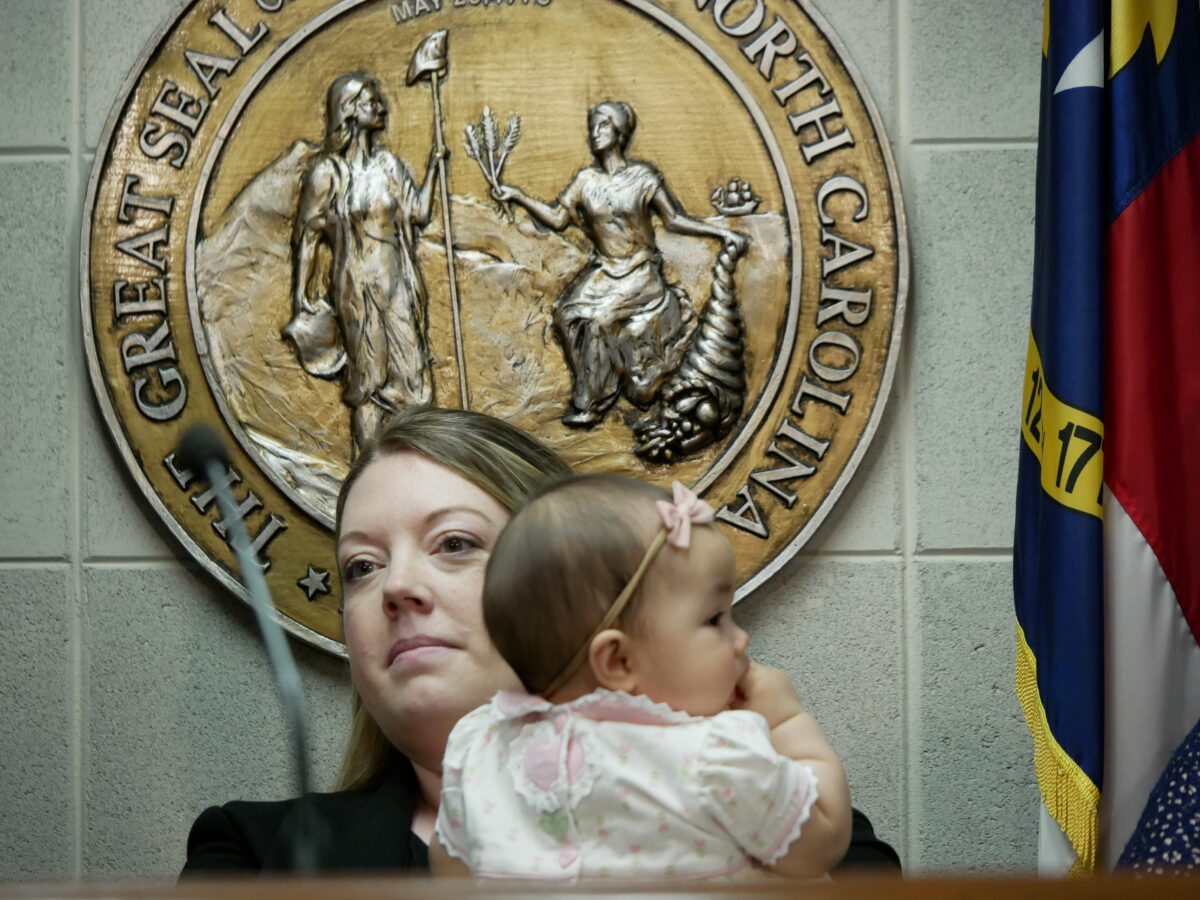

|
|
Early childhood caucus chairs in the legislature are hoping to send a one-time $300 million to child care programs across the state as federal relief funds that support providers dry up at the end of the year.
“Without those dollars, we’re going to lose a significant number of child care providers across the state,” Rep. David Willis, R-Union, caucus co-chair and owner and operator of a preschool program in his district, said Thursday at a press conference of advocates, providers, legislators, and business leaders. “It has to be our No. 1 priority.”
Parents are struggling to find and afford care, providers are struggling to stay open and find teachers, and businesses are struggling to find workers.
“No one has availability,” said Daphne Alsiyao, a mother of three who spoke Thursday with her 8-month-old in her arms. Alsiyao, family support manager at the North Carolina Partnership for Children, said she had lost count of the number of waitlists she had joined so she could go back to work — without luck. “Often it’s because they cannot hire enough staff or retain them when so many jobs in food service or retail pay more.”
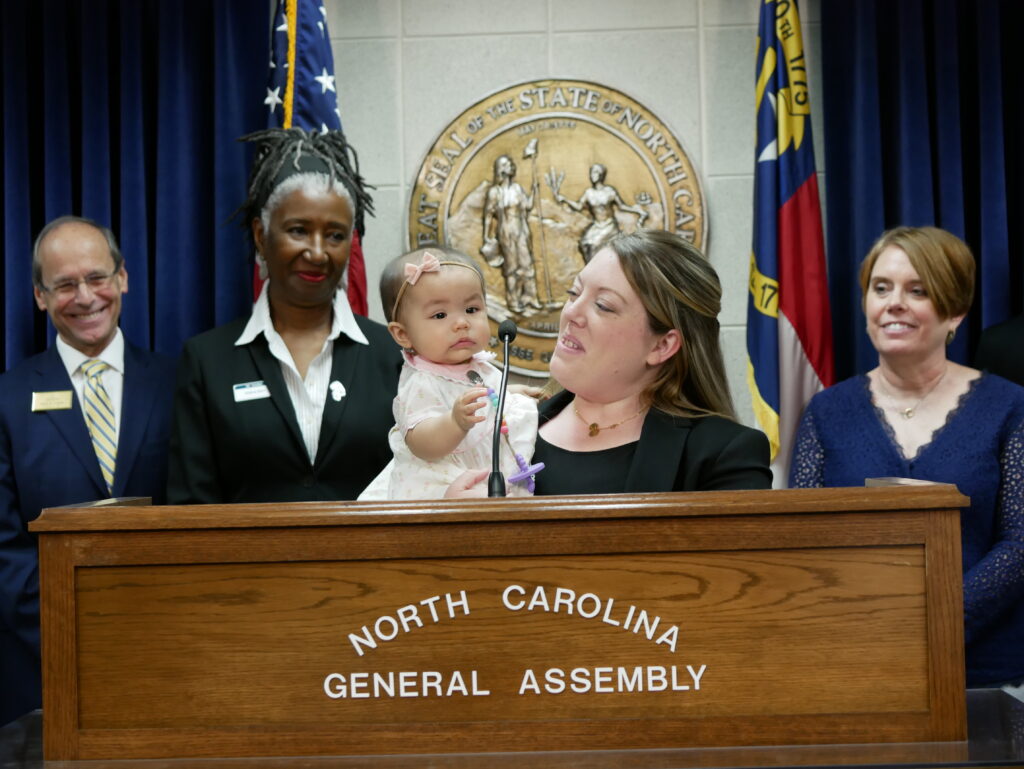

“We are on the edge of falling off a cliff that will impact everyone in the state,” said Michele Miller-Cox, executive director of First Presbyterian Day School, a child care program in Durham.
“This investment is urgently needed so that we can continue to support the teachers we do have and continue to recruit new teachers into the classroom.”
The $300 million proposal is one of five bills filed by bipartisan legislators that caucus leaders said would be their focus this session. The bills are aimed at supporting the child care industry through teacher compensation and higher subsidy rates, rethinking the state’s quality rating system, boosting maternal and infant health, and creating a pilot for a new funding model for child care.
“Without access to affordable, safe child care, a parent cannot go to work or is overworked at home,” said Debra Derr, director of government affairs for the state Chamber of Commerce, which has formed a coalition to push for solutions. “… We believe it is time to reimagine this critical infrastructure.”
Continued compensation
The $300 million in House Bill 342 and Senate Bill 292 would continue grants distributed by the Division of Child Development and Early Education (DCDEE) that were originally funded from the federal American Rescue Plan.
“It is incumbent upon us not to allow this federal support program to go away without backfilling the needs that so many providers across the state desperately need,” Willis said.
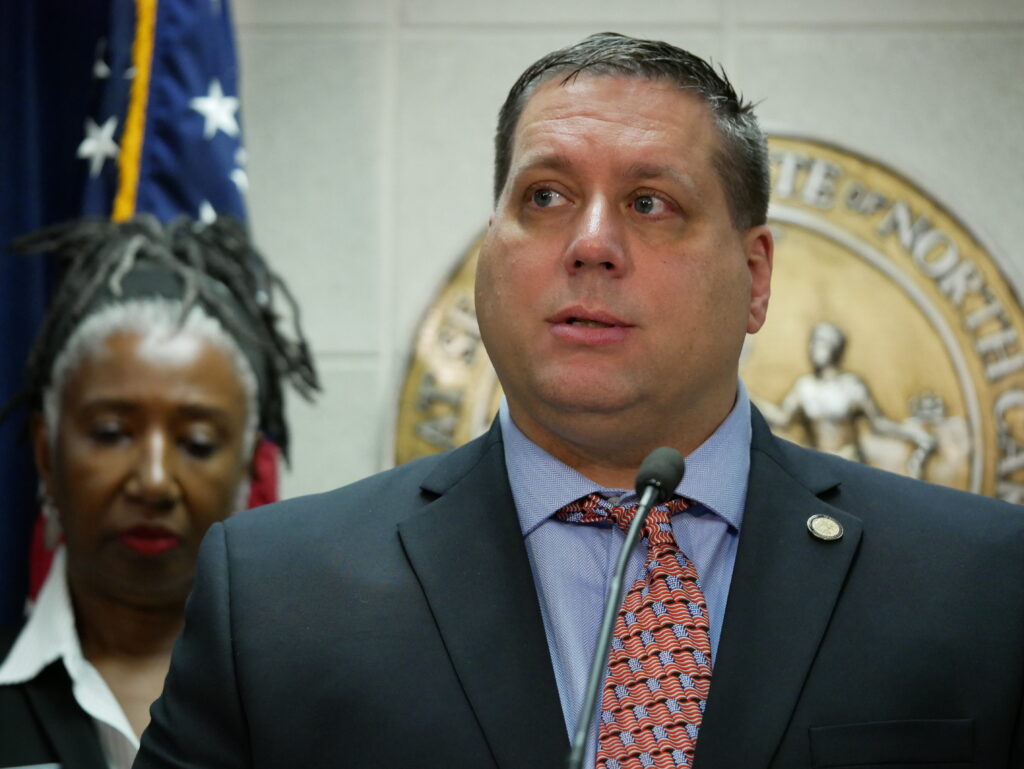

These grants would go to supporting early childhood teacher compensation. Most programs have used the federal funds to give bonuses or raise base wages for teachers. Providers and advocates fear widespread teacher turnover, lower quality, and higher rates for parents if compensation returns to pre-pandemic levels. In 2019, the median wage for child care workers in the state was $10.62, according to the Bureau of Labor Statistics. In 2021, it was $11.23.
Higher, fairer subsidy rates
Senate Bill 288 and House Bill 343 would increase the rates that child care programs participating in the state’s subsidy program receive to serve children. The legislature sets those rates by county, and they are based on a market rate survey completed every two years that asks child care providers what they charge parents.
The bill asks for $24 million in recurring funds to increase the rates to the most recent survey results, from 2021, and automatically increase the rates based on the most recent survey in the future. It would give $206 million to $215 million to expand the reach of subsidies.
The bill also would create a statewide floor, meaning that participating child care programs in counties where the rate is below the state average would instead receive the average rate. The bill would allocate $14 million in the first year of the biennium and $85 million in the second.
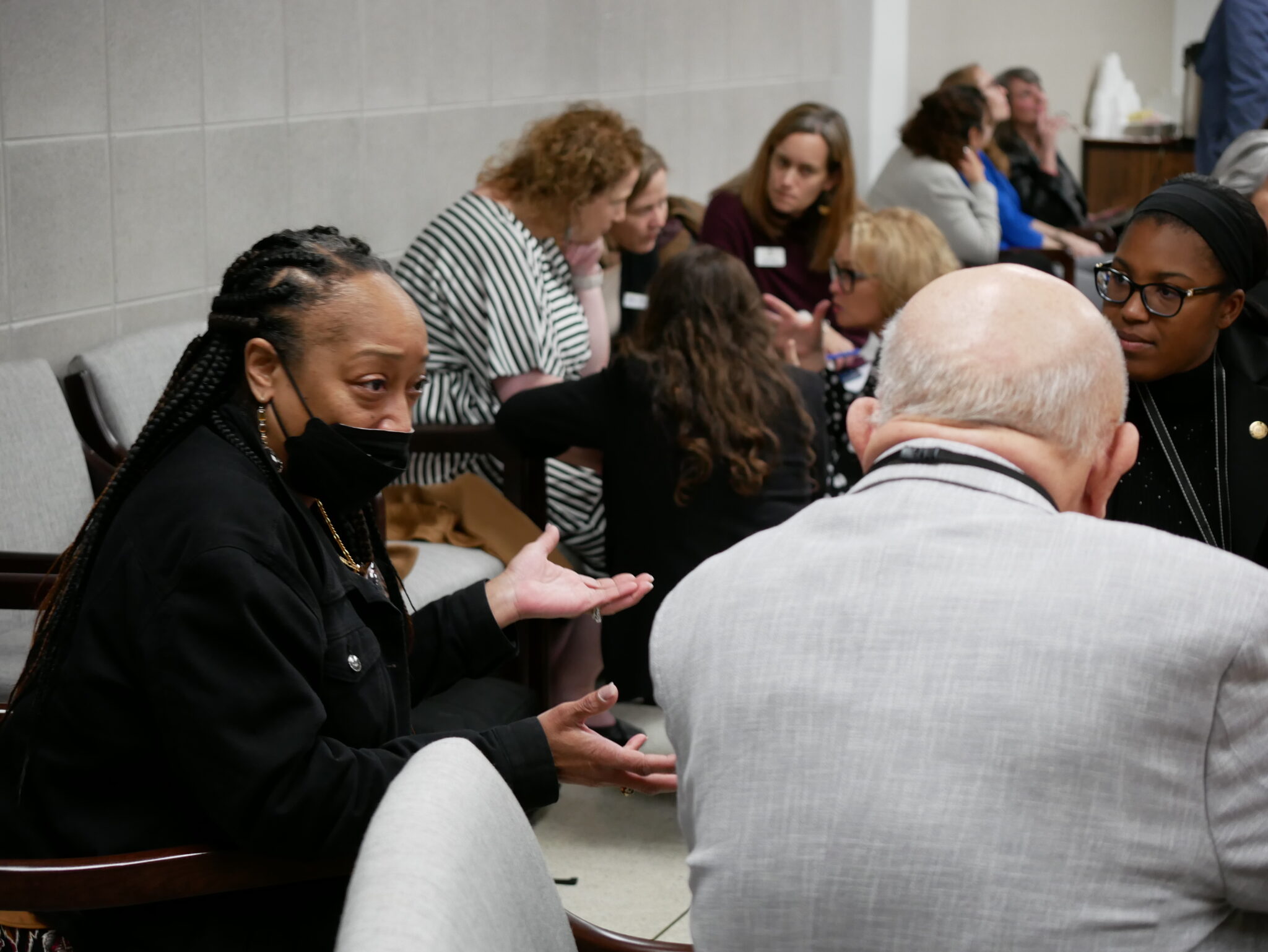

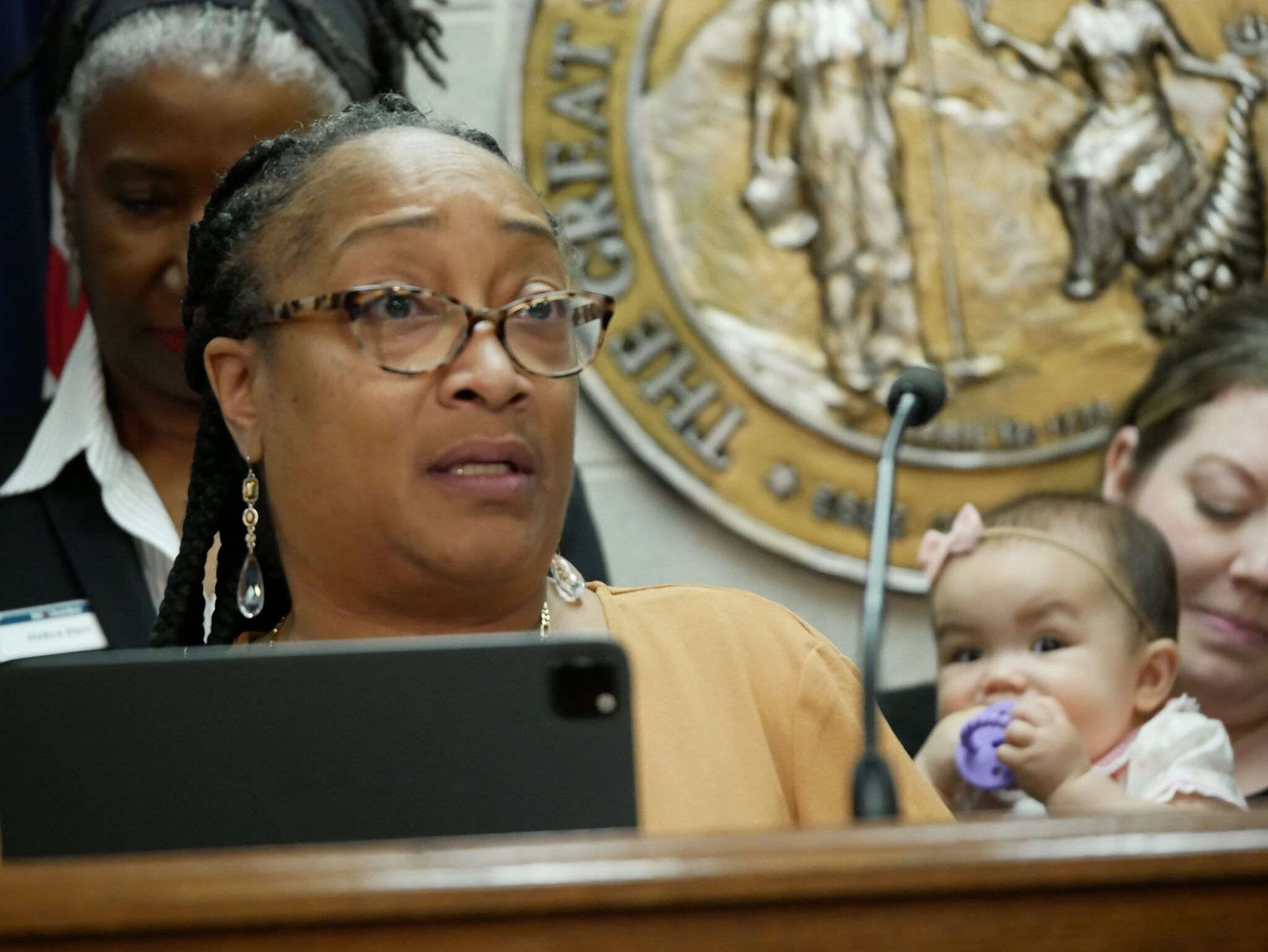

The bill notes that the legislature plans to use increased federal funds from the Child Care Development Block Grant to partially fund these efforts.
“How do we provide subsidy that is going to help working families, not just in Wake and Meck and Guilford counties, but in Chowan and Bertie, in Wilkes County and Yadkin County, in so many other smaller rural counties?” Willis said.
Splitting child care cost three ways
House Bill 322 and Senate Bill 293 would establish a three-county, three-year pilot to test a new way to fund child care based on Michigan’s Tri-Share model. The pilot would split the cost of care among businesses, eligible employees, and state government.
The bill would allocate $900,000 in each year of this biennium, and another $900,000 in 2025-26 to cover the state’s portion of the cost.
“It will help us strengthen the child care workforce, and it will help businesses have child care as an incentive to keep their people employed, which is a win-win across our state,” said Rep. Ashton Clemmons, D-Guilford, co-chair of the caucus.
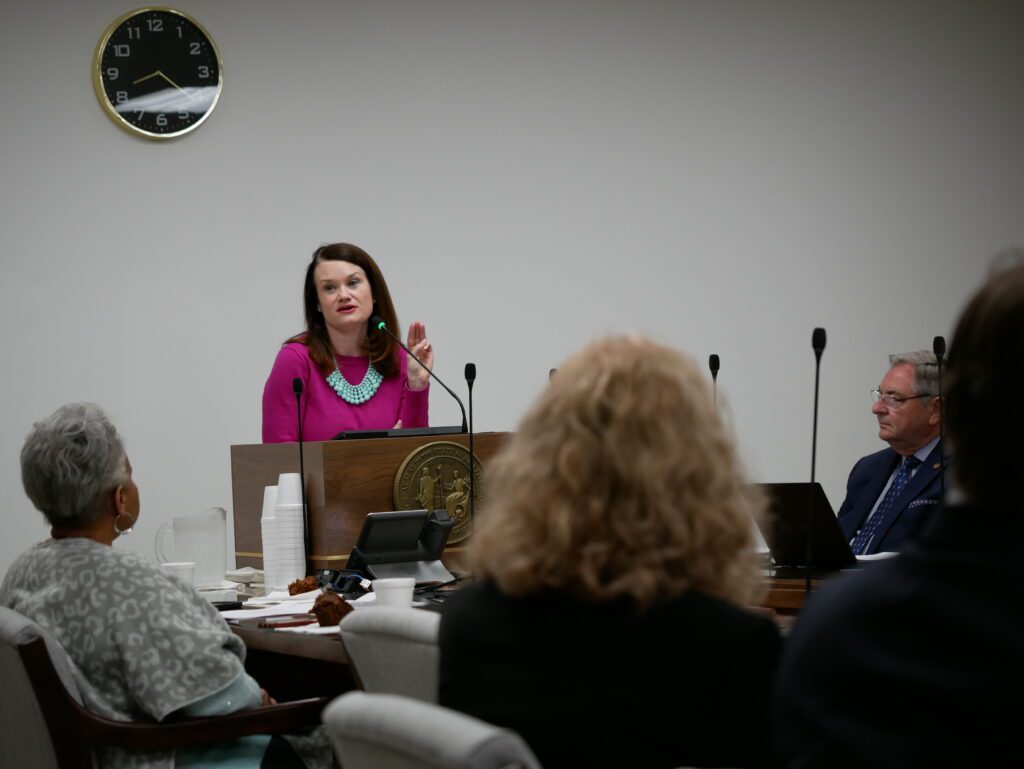

The funds would be given to DCDEE and run through the North Carolina Partnership for Children, which has a network of 75 local partnerships. These two groups would be responsible for choosing the three pilot counties, which the bill said must be geographically diverse and include one economically distressed Tier 1 county.
Local Smart Start partnerships in those counties would serve as regional hubs responsible for soliciting employers to participate and ensuring employers and employees paid their portion of funds.
Employees would be eligible if they are employed at a participating employer, have an income between 185% and 300% of the federal poverty level, and are not otherwise eligible for subsidized child care.
The bill would require DCDEE to report to the Joint Legislative Oversight Committee on Health and Human Services and the Fiscal Research Division on the program’s outcomes, including what it would cost to expand the program statewide.
Supporting maternal care
House Bill 321 and Senate Bill 294 would increase Medicaid rates for obstetric care providers, fund doulas to care for mothers during pregnancy and right after birth, and fund group prenatal care, a strategy that has been associated with lower instances of preterm births and low birthweight.
“I want us to do everything we can to reduce infant mortality in the Black community,” said Sen. Jim Burgin, R-Harnett, referencing higher death rates for Black infants than for other racial groups. “… This will help solve that.”
In 2021, Black babies were more than two times as likely to die in their first year of life than white babies. Black babies are also more likely to be born prematurely and with low birthweight, which are among the top reasons for infant death.
The bill asks for $2.8 million in recurring funds to the Division of Health Benefits for each year of the biennium to match $5.5 million in recurring federal funds.
These supports can help provide care, information, and emotional support for parents, Burgin said. His priority is rethinking resources for parents and children during “the four three’s” — the first three months of pregnancy, the first three months after birth, the first three years of life, and to support third-grade reading.
“If we can take a child and that mom through those stages, we’re going to have successful outcomes,” he said.


Rethinking quality rating
The fifth bill legislators are prioritizing is aimed at rethinking how centers are rated on the state’s Quality Rating Improvement System (QRIS). Licensed programs receive one to five stars depending on such standards as teachers’ education levels.
Through June 2026, House Bill 344 would lower the requirements for licensed child care programs to receive points for teachers’ education levels. The percentage of lead teachers who meet education standards would need to be 50% instead of 75% for the center to earn “education points” toward its star rating.
The bill also would task the Child Care Commission to create recommendations for changes to the rating system, including an alternative pathway for licensed programs to earn equivalent stars through national accreditation organizations like the National Association for the Education of Young Children (NAEYC) and the American Montessori Society.
“We know there’s been a lot of talk and discussion around what quality looks like in a challenging environment,” Willis said. “We’ve lost a lot of licensed teachers, and it’s made it harder and harder to comply with well-intended rules and regulations.
“But it’s time to revisit that — what that looks like and how we maintain high quality and high expectations in a challenging environment.”





